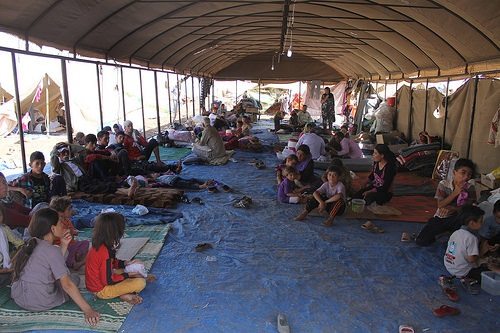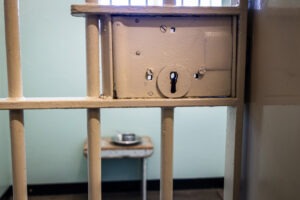
August 14, 2014; Relief Web
The Obama administration made a big show of airdrops of humanitarian relief to the Yazidis, members of a small religious sect, trapped on Mount Sinjar in northern Iraq by the advance of genocidal ISIS troops. Though there has been some question of the numbers and conditions of Yazidis on the mountain, that debate is beside the point; Yazidis there and in their villages are in danger, as demonstrated by the recent ISIS attack on the village of Kocho, where as many as 80 men were killed for their unwillingness to convert to Islam.
Sign up for our free newsletters
Subscribe to NPQ's newsletters to have our top stories delivered directly to your inbox.
By signing up, you agree to our privacy policy and terms of use, and to receive messages from NPQ and our partners.
Lost in the focus on the critical issues facing the isolated Yazidis are the much larger dimensions of the humanitarian aid crisis in Iraq—both since the emergence and advance of ISIS militants and before ISIS overran much of the country—and the huge challenge facing aid organizations on the ground:
- ISIS is a real threat to many religious and ethnic minorities in Iraq, not just the Yazidis. As artificial as the political boundaries of Iraq might have been when they were crafted in the Sykes-Picot agreement in World War I, Iraq has long been a historically inclusive nation. ISIS is displacing and killing these minority groups—and that’s genocide.
- Yazidis and others are flooding into the Kurdish areas of northern Iraq, hoping that Kurdish Peshmerga fighters will provide them the safety that the official Iraqi military obviously can’t. The population of the Dohuk province may have doubled due to the influx of refugees. Thousands of Yazidi refugees are in Dohuk and Irbil, only a short drive from the front line where the Peshmerga face off against better-equipped ISIS militants. The Iraqi government in Baghdad is missing in action when it comes to financial assistance to the Kurds to help the refugees.
- The million reported new refugees in Iraq in recent months add to the refugee crisis in the region, including those millions already displaced in Syria by ISIS troops and by the response of the Assad regime.
- As ISIS clears out opponents in much of the nation as it marches to Baghdad, the United Nations has declared the refugee crisis an “emergency level three” situation, the most critical level in the UN’s lexicon. “The main reason for L3 emergency for Iraq is that the scope and breadth of the emergency now exceeds the capacity of the in-country UN system and partners to respond,” explained Brendan McDonald, the acting director of Office for Coordination of Humanitarian Affairs.
Aside from the aid drops from U.S. and British aircraft, how are humanitarian aid groups responding? The Voice of America reports that the United Nations High Commissioner for Refugees (the UN’s refugee assistance agency) and the World Health Organization are increasing their provision of aid. WHO, for example, is increasing its provision of medicine to refugees and deploying nurses and mobile health clinics in the Dohuk region.
Some more aid gets in through religious and secular NGOs. With the serious threats to Christian populations in Iraq, a number of Catholic NGOs have stepped up their aid efforts, including Aid to the Church in Need—USA, Caritas, Catholic Relief Services, and the Catholic Near East Welfare Association, just to name a few. But the dimensions of the humanitarian crisis in Iraq aren’t just Christians and Yazidis, but a larger population of people in need.
In this telling, the humanitarian issue in Iraq may seem largely sectarian. The reality is much different. Huge swaths of the nation have been displaced and placed in dire need. Whether or not the U.S. might have bear some responsibility for all of this with its ill-considered invasion of Iraq in 2003, the nation and its associated foundations and charities have yet to craft a humanitarian aid strategy commensurate with Iraq’s current needs, which will only be exacerbated going forward.—Rick Cohen













